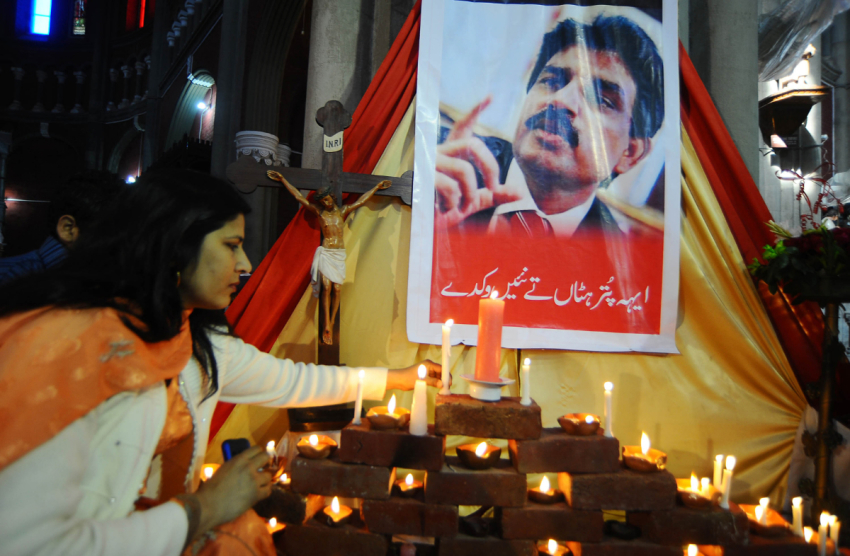Christian groups raise alarm over 2 bills in Pakistan increasing punishments for blasphemy

Two bills passed by Pakistan’s Legislature have raised concerns among Christian and civil society groups. The Criminal Laws (Amendment) Act 2023 increases punishment for blasphemy offenses, while the National Commission for Minorities Bill 2023 fails to adequately safeguard minority rights.
The Criminal Laws (Amendment) Act 2023, passed in Pakistan’s Senate this month, increases the punishment for insulting the Islamic prophet Muhammad’s companions, wives and family members from three years to life imprisonment, and says it must not be less than 10 years, the U.K.-based group Christian Solidarity Worldwide said in a statement.
The National Assembly approved the legislation in January 2023, and civil society and minority communities in Pakistan warned that it could fuel rights abuses and target religious minorities, the group explained.
On the same day, CSW added, the National Assembly passed the National Commission for Minorities Bill 2023.
Civil society groups in Pakistan assert that the bill’s provisions are inconsistent with the U.N. Paris Principles and fall short of meeting the directives of the Pakistan Supreme Court judgment of June 19, 2014. The bill was also criticized for not creating a truly functional institution to safeguard minority rights.
“Making the blasphemy laws more stringent could inflame the situation further,” CSW’s Founder President Mervyn Thomas said. “The National Commission for Minorities Bill 2023 is a missed opportunity to enact legislation that safeguards the rights of religious minorities in Pakistan.”
Pakistan’s blasphemy laws criminalize anyone who insults Islam, carrying either the death penalty or life imprisonment. These laws are often used as a weapon of revenge to settle personal scores or disputes over money, property or business.
The punishment under the blasphemy law includes a fine of 1 million rupees (roughly $3,500), Senator Mushtaq Ahmad Khan, one of the movers of the bill, told Anadolu.
Some members of the House, including Sherry Rehman of Pakistan People’s Party, insisted that the bill should be referred to the relevant committee for review, Pakistan Today said, adding, however, that Senate Chairman Sadiq Sanjrani sought votes on the bill, and it was passed.
The bill’s statement of objectives highlights that some individuals are involved in “blasphemy on the internet and social media,” causing “terrorism,” “disruption in the country,” and hurt to people from all walks of life. It terms the current punishment for the offense as “simple,” adding that it led to people punishing the suspects on their own, leading to an increase in violence.
The ban against blasphemy, which carries no provision to punish a false accuser or a false witness, was expanded in the 1980s under military dictator General Zia-ul-Haq. According to The New York Times, the British government enacted the original laws in the late 19th century colonial era to keep people of different faiths from fighting each other.
In recent years, there have been several high-profile cases that have brought international attention to the issue.
In 2011, the governor of Pakistan’s Punjab province, Salman Taseer, was assassinated by his bodyguard for speaking out against the blasphemy laws.
In the same year, Asia Bibi, a Christian mother of five, was sentenced to death for alleged blasphemy, sparking international outrage, leading to her acquittal in 2018 after spending eight years on death row.
Her acquittal drew the ire of radical extremist groups, as many protested in the streets and threatened to kill the Supreme Court justices responsible for setting her free.
In 2014, Christian couple Shehzad and Shamah Masih were burned to death in a brick kiln over false accusations that they had ripped pages out of the Quran.
In 2020, the Human Rights Commission of Pakistan reported that at least 69 people were killed extrajudicially in mob violence related to blasphemy allegations since 1990.



























